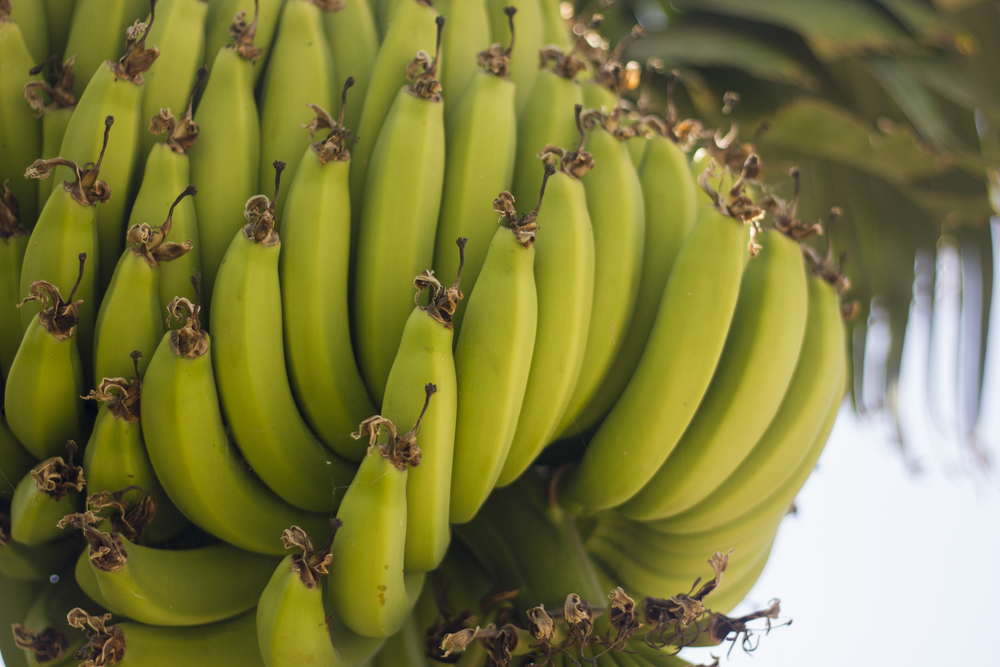Dutch university grows bananas to help stamp out fungal diseases


Researchers from Wageningen University are this week harvesting the first Dutch bananas which will be offered to restaurants and hospitals in the region as a ‘regional product’.
The aim of the experiment, which marks the 100th anniversary of the university, is to investigate whether new ways of cultivation will help stamp out soil-borne fungal diseases which threaten banana production throughout the world.
Taking the banana trees out of the soil and growing them on stone wool appears to have been very successful, says Gert Kema, professor of tropical plant pathology at the university.
‘The banana plants grow very well on coco peat and stone wool substrate with only the application of a nutrient solution,’ Kema said on the university website. ‘The Dutch banana does not need disease control, which makes cultivation more sustainable than in traditional production areas.’
Ripening
There are 60 plants in the Wageningen greenhouse. ‘One of the things that we have learned is that the plant density is too high at the moment,’ Kema said. ‘We are going to adjust that, so that we will have more light and the bunches will be able to ripen faster in future experiments.’
Once the Wageningen bananas have been harvested they will be moved to a ripening centre operated by banana giant Chiquita, which is involved in the project.
New breeds
‘We are on the way to developing sustainable banana cultivation with new breeds of bananas that are resistant to diseases and that are grown in healthy soils in a responsible social climate,’ Kema says.
The research group is also planning a trial in the Philippines to see how precision cultivation works under ideal conditions.
Bananas are a staple food for more than 400 million people in the tropics, the fourth most consumed food crop, the most consumed non-cereal staple food, and the most consumed fruit in the world, Wageningen says.
Thank you for donating to DutchNews.nl.
We could not provide the Dutch News service, and keep it free of charge, without the generous support of our readers. Your donations allow us to report on issues you tell us matter, and provide you with a summary of the most important Dutch news each day.
Make a donation